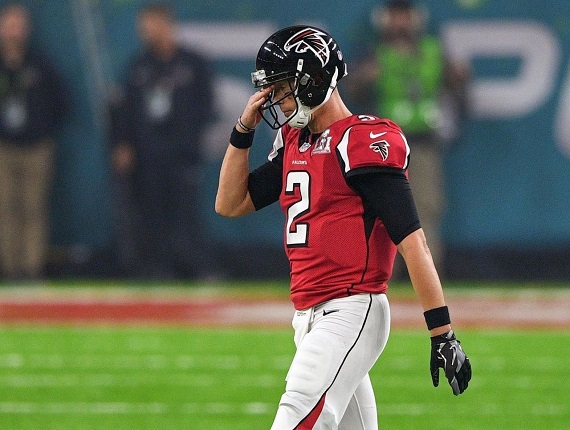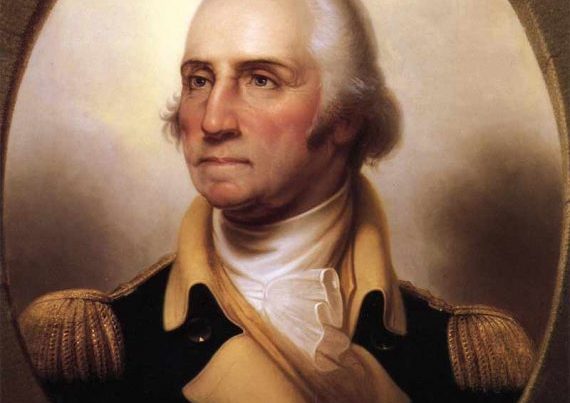I am a Georgian and a University of Georgia alumni. I have been a fan of all the Atlanta sports franchises since I was a kid, and I was a huge fan of the Georgia Bulldogs even before I went there. Needless to say, I was very disappointed by the outcome of the Super Bowl, and since Atlanta/Georgia is a notorious hard luck sports town/state, this disappointment is nothing new.
Prior to the Super Bowl I kept telling people that if they didn’t have a compelling rooting interest for New England, they should root for Atlanta because after all these years of futility, we deserved a championship. Remember that the Braves won 14 consecutive division titles, a feat that will almost certainly never be duplicated, and we only got one World Series championship out of that run, and that remains the only major championship the city has ever won.
It has become trendy lately in certain right-wing circles to signal against organized sports. To some cerebral conservatives, sports are just another aspect of the entertainment industrial complex that attempts to distract and placate the masses and keep us unaware of the decline that is going on around us. You know, that bread and circuses thing. And when sports are not distracting us, they are attempting to foist liberal values on us. Sports broadcasting, which if any medium should be neutral or even lean right, has become a bastion of political correctness. This deserves a column all its own, but ESPN is often derisively called ESjwPN (SJW = Social Justice Warrior) for a reason.
I am willing to concede that these right-wing anti-sports signalers are correct at an intellectual level, but I believe they are missing the point at the visceral level. Not for signaling reasons, but I have questioned my own sports fandom many times. Every time one of the teams I root for suffers a devastating defeat in a big game, I tell myself that I’m going to disengage from sports because, if you really think about it, it makes no sense to emotionally invest in something you have absolutely no control over. If you are going to emotionally invest in the outcome of a sporting event, it should be one you are participating in so you have some control over the outcome. I have actually disengaged some as I have gotten older. When I was a kid, teen and young adult I would pout for days after a big loss and be mad at other fans who weren’t equally pouting. After a big Georgia Bulldog loss on Saturday, I would go to church on Sunday and be mad at all the people who were happily chatting it up. “Don’t you know we lost?!” I would fume internally.
But as much as I tell myself on an intellectual level that I need to disengage, like Michael Corleone and the family business, I inevitably get pulled back in. In reality, who am I trying to kid? I’m a red-blooded Southern male. Sports fandom is what we do. It’s in my blood and always will be. I’ll be right back there rooting hard with the best of them the next time the Bulldogs or the Falcons or the Braves or the Hawks are in contention.
This is where our cerebral anti-sports signaling conservatives go wrong. They miss the visceral aspect. I hear this is changing with millennials, but when I was a kid if you didn’t like sports, you were considered odd or … how to put this delicately … not particularly manly. You had to at least know something about sports so you could hold your own in a discussion. Lack of personal athletic prowess could even be compensated for to some degree by demonstrating excessive knowledge of and enthusiasm for sports. Those who could played. Those who couldn’t collected cards. In essence, sports fandom was the normal state. Not caring about sports marked you as an outsider.
I, for one, find the decreased interest in sports among millennials a bit alarming. They don’t lack interest for the “right” reasons. They lack interests in sports because they are more interested in video games, media, pop culture, etc. and this lack of interest reflects the increasing feminization of our culture and demonization of the traditional masculine virtues and millennials’ increasing distance from traditional American society. I feel the same way about millennials’ declining interest in automobiles. When I was a kid you were either a Ford Man or a Chevy Man with a few Mopar outliers even if you didn’t really know why. You just had to take a side. For today’s millennials the idea of picking a side in the Ford vs. Chevy debate is a foreign concept.
Conservative anti-sports signalers should recognize intuitively why decreased interest in sports of the younger generations is not a good omen. Since many of these anti-sports conservatives are more nationalist in orientation, they should recognize that enthusiasm for sports is part of the American national character. It’s one of the things that sets us apart from other countries, especially the fact that one of the sports we are enthusiastic about is not that infernal globalist leveling plot known as soccer. Anti-sports conservatives, while rightly motivated and at least on some level correct, risk coming off as odd and prissy, like the kid in grade school who didn’t care about sports, among precisely the type of people whose native nationalistic instincts they are trying to cultivate. Sports fandom is what red-blooded Americans do, and I’m not sure that that ultimately is a bad thing. Anti-sports conservatives need to figure out how to work with this reality, not signal against it.







